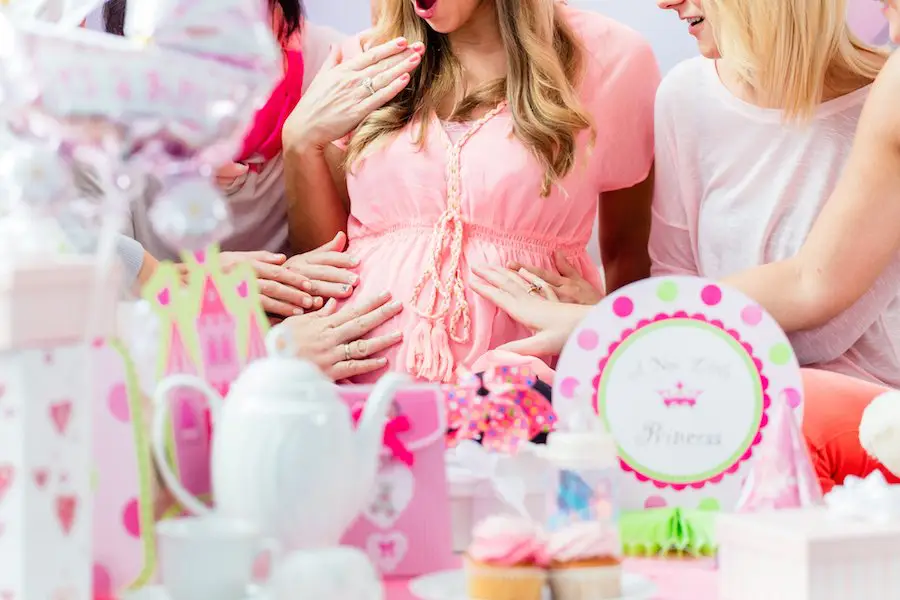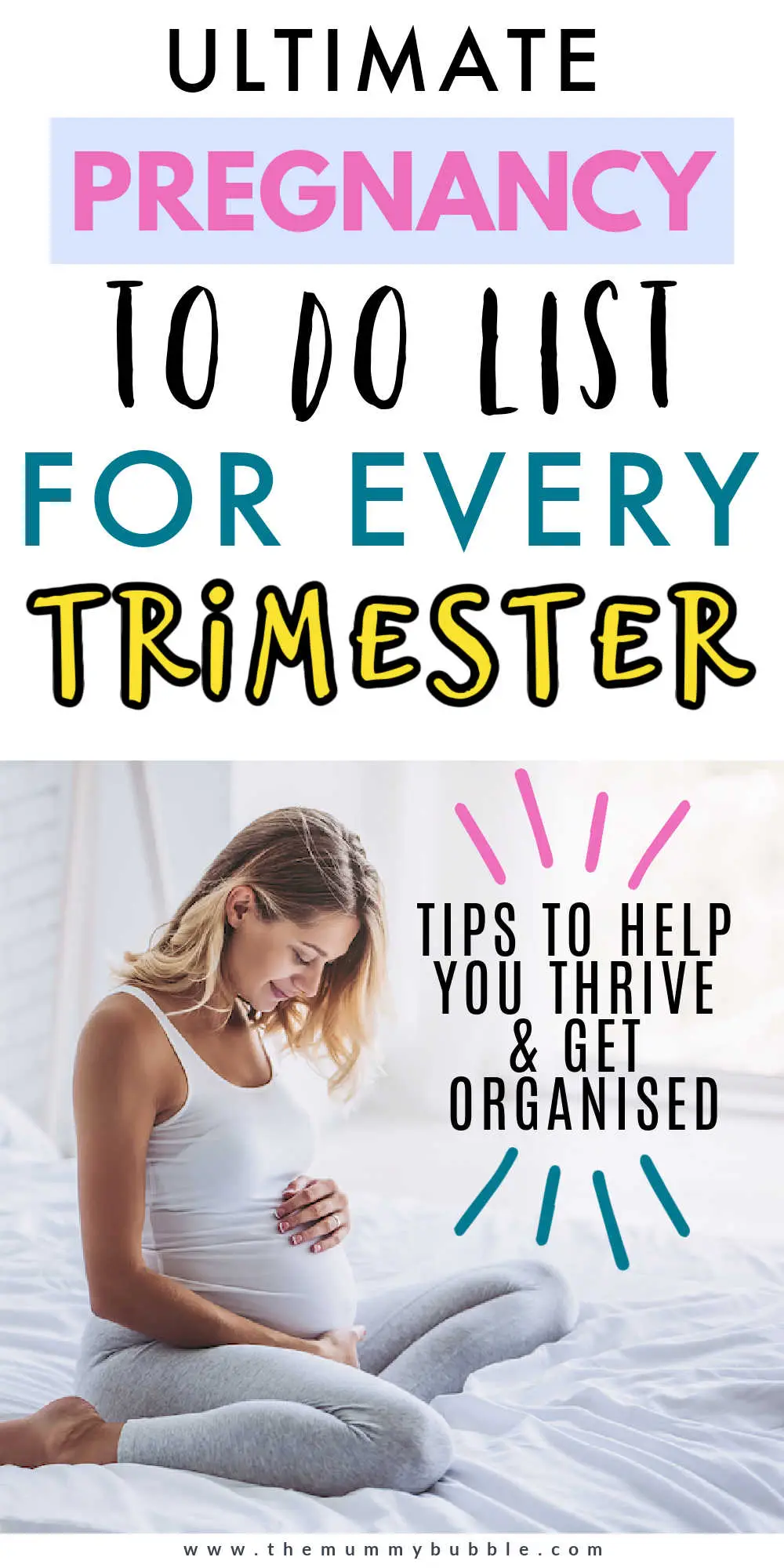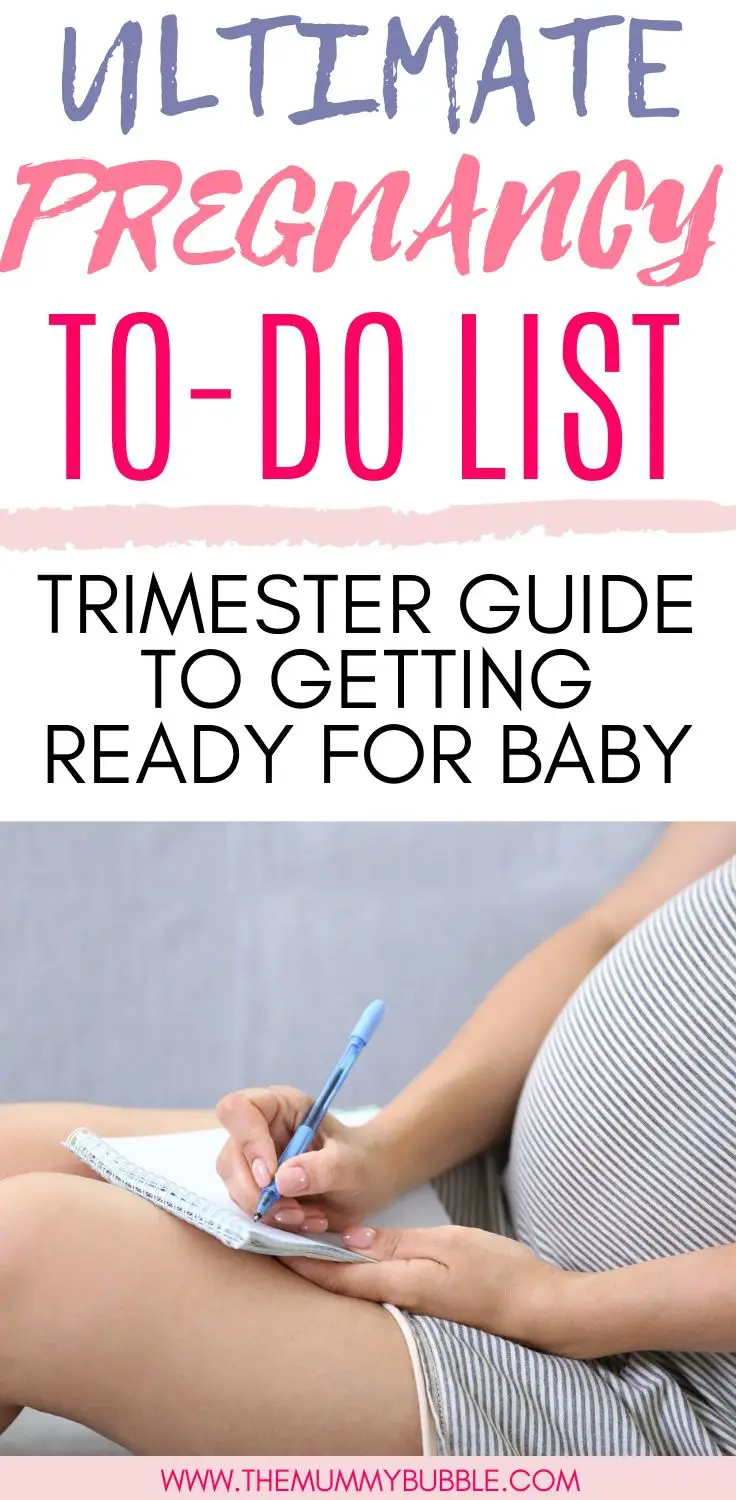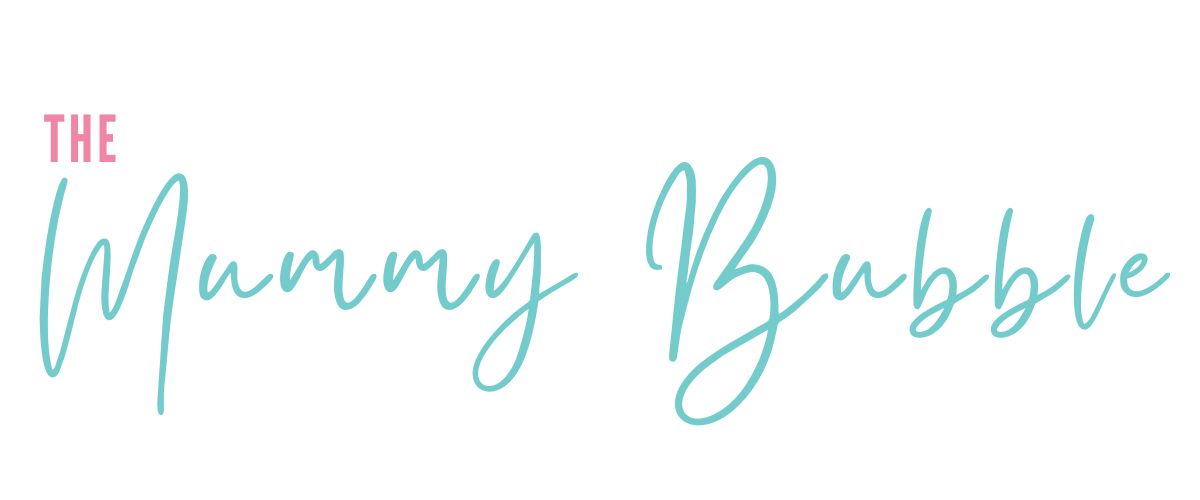This is your ultimate pregnancy to-do list featuring all of the key things you need to get done when preparing for a baby.

I’ve broken it down by trimester so that you can plan month by month what you need to be doing and prepare for what’s coming up.
This simple list of all the essential things to think about has been created to help make getting ready for baby a breeze!
If you’re in the early stages of pregnancy, and aren’t even sure if you are pregnant, you may want to check out this post on the early pregnancy symptoms that happen before you get a positive test.
When I was expecting the first time I remember feeling so overwhelmed at the idea of this huge change in my life that was approaching.
But actually it’s a really fun time, if you take out the grim pregnancy symptoms like nausea and fatigue, and definitely something to slow down and enjoy.
This exhaustive list is what I wish I had during my first pregnancy, so I’m sharing it with you to take the stress out of pregnancy!
I hope it helps you plan and enjoy your time leading up to baby’s arrival!
Before we get to the list, you can also check out my pregnancy planner featuring 50+ pages to guide you through your pregnancy and help you record all of the special memories. Find out more here.
This post contains affiliate links.
First trimester to-do list
Start taking prenatal vitamins
It’s recommended that ladies who are trying to conceive start taking a folic acid supplement right away, as much as three months before baby is conceived.
If you have not been taking this, then do not panic! Start taking a folic acid supplement as soon as you found out you are pregnant. You should take 400 micrograms of folic acid in tablet form every day in your first trimester. This can help prevent neural tube defects such as spina bifida.
Most pregnancy vitamins are mixed with other vitamins that are essential for a healthy pregnancy. You can also buy packs of vitamins that include a fish oil capsule, which has been shown to be beneficial for your baby’s brain development. In my opinion, this is the best brand for prenatal vitamins.
Make a doctor’s appointment
If you’re in the US, you will want to double check your health insurance and see what, if any money, you may need to cover the cost of birth and healthcare.
In the UK, everything is covered under the NHS (I think we are so lucky). The only thing you will need to fund for your own healthcare is the prenatal vitamins.
You should call your GP and they will arrange for you to have an appointment with a community midwife. That first appointment is a good chance to ask questions and establish your due date!
Cut out unhealthy foods
Being pregnant is wonderful, for the most part. But it does mean you need to take a look at your eating and drinking habits to make sure you’re taking care of your body, and your growing baby.
The key foods to ditch in pregnancy now are alcohol, too much caffeine (you’re allowed a small amount a day, say one cup of coffee), too much sugar, mouldy and unpasteurised soft cheeses, too much tuna and raw fish.
While the advice used to be that eggs must be cooked all the way through (no runny eggs for dipping), if your eggs contain the British Lion standard stamp and are within date, you’re considered safe. Be mindful of eggs bought without a standard stamp guaranteeing best practice for their production. If in doubt, cook the eggs right through.
Stick to a balanced diet featuring lots of fruit and vegetables, fish, meat, dairy and carbs.
Drinking raspberry leaf tea can help in the final weeks of pregnancy, so start thinking about stocking up!

Ditch smoking
If you’ve been waiting for a good excuse to motivate yourself to quit cigarettes then this is it! Smoking can cause problems with your baby’s growth in the womb and may lead to developmental issues.
There is also a bigger risk of cot death in babies who live in a home with smokers. So get some help with quitting, for both you and your baby’s dad.
Figure out your finances
Whatever your financial situation is, your bank balance will take a hit when you have a baby! There are things to buy before baby arrives and then ongoing expenses for the first year and beyond, from clothes to food and toys to safety equipment and holidays.
The earlier you can sit down and figure out your budget, the better.
Find out what you can put towards the baby stuff and how much you need to save to make up the shortfall.
There are items you can do without, like baby shoes and designer outfits, and others that are essential, such as a cot, a car seat and a buggy.
It’s hard to say exactly how much you will need to spend on baby items before you give birth, as it does depend on whether you’re prepared to source some things from second hand. You may also have generous friends and family who are happy to buy you things from your list!
My guide to the baby costs in the first year can help you plan.
However it’s safe to say you will likely need around £500, or $650. The true figure may be a few hundred pounds more, but if you avoid designer items and expensive brands you can stick to a budget.
Plan how you will fund this expense right now and start saving for it.
You will also need to start thinking about how long you will take off work and how you will make up for the lack of your income. It would be great if you can get hold of your employer’s maternity pay policy right now.
If you can’t, because you don’t want them to know about your pregnancy right now, then assume that you may only receive some money for the first six weeks.
Think about whether you can survive on just one income for a full year, or if you will need to return to work sooner than this.
You will also need to budget for childcare fees if you are returning to work. If you have generous family who live close by, you may be able to ask them to care for your baby some of the time so that you can save money on childcare bills.
Work out how to prepare for baby on a budget with these top tips.
If you’re wondering whether it’s too soon to start buying baby stuff, check out this guide to when you can start buying baby items!
Rest
The first trimester is extremely tiring! That’s because your body is working hard to create the placenta and establish a nurturing environment for your baby.
Hormonal changes and the physical changes mean you will feel tired a lot of the time.
The only solution to this is to rest and look after yourself. If the fatigue is really getting you down, find ways to treat yourself that keep you immobile such as renting a movie, getting your nails done or taking a bath.
Now is a great time to start getting a daytime nap if you can. Your baby will sleep sporadically at night and in the day, so help your body clock get ready for this by getting used to taking daytime power naps.
Struggling to get sleep? Check out these tips for sleeping during pregnancy.
Get a pregnancy book
It’s fascinating to find out what changes are happening inside your womb every week as baby grows at an amazing rate.
A pregnancy book will help you track the key changes and give you tips for how to cope with the challenges of being pregnant.
This is a fantastic pregnancy book. You could also pick up a book that includes places for you to make a note of your experiences and feelings as the pregnancy progresses.
Tackle the first trimester nausea
It’s called morning sickness, but it can happen all day every day. The nausea is due to hormonal changes and can leave you feeling really down and exhausted.
To tackle nausea, try to avoid feeds and smells that are a trigger for it, eat smaller portions frequently rather than large meals, nibble on a ginger biscuit before getting out of bed in the mornings and drink lots of water.
There are various pregnancy snacks that can help to take away nausea and the nasty taste it can leave in your mouth. Sucking on hard boiled sweets can help a lot.
There are lots more tips for coping with nausea here.
Stop changing kitty litter
Hooray! One of the best things about pregnancy is it gets you out of kitty litter duty!
Cat poop can transfer toxoplasmosis to humans. This can be extremely dangerous to pregnant ladies and their unborn baby. The best way to avoid it, is to not change kitty litter at all!
Get gentle exercise
You will need your strength for the birth, and you may find gentle exercise helps with your fatigue.
Take short walks near your home and gentle stretches at home.
Research your local birth classes
In the UK we have NCT classes. Prenatal classes about giving birth are not only a great way to learn about what will happen when you are in labour, but they also help you meet new friends!
The people in your class will be in exactly the same boat as you, with babies arriving on similar dates. Many people make friends for life at their prenatal birthing classes!
Get an amazing moisturiser
Start moisturising every single day, twice a day. You especially should moisturise immediately after getting out of the shower.
This helps your skin, which will stretch and be put under a lot of pressure during your pregnancy, stay supple and may help you to prevent stretch marks.
Plan a way to announce your pregnancy
How do you want to tell people about your pregnancy? Many people wait until the first trimester is over, as the risk of miscarriage is highest during this time.
After the first 12 weeks is up, and you’ve had your first scan, you may want to let people know about your pregnancy with a fun announcement on social media.
You could try taking a picture of you with your first scan photo, or do something funny. Start thinking about it now and it gives you something nice to look forward to.
Make your normal clothes last longer
Every single woman is different when it comes to the pregnancy bump. Some ladies won’t show until 16 weeks or beyond, while others will feel their belly start to grow within the first 12 weeks.
You can make your existing clothes last longer by buying waist expanders for your jeans and trousers. Stick to leggings and baggy tops that can help you to mask the bump, if you don’t want people to know just yet, and keep your comfy.
Think about prenatal tests
At your first scan and during your prenatal appointments, you will be offered blood tests and other examinations to determine your baby’s health and risk for developing certain complications.
Read up on what will be available to you now and think about whether you want these tests. You don’t have to have them, but many expectant parents like to know what they may have to face or deal with in the coming months. Having the tests helps you to make informed decisions and be prepared.
Drink lots of water
One of the best things you can do for yourself and your baby during pregnancy is drink lots of water. If you are feeling nauseous then this may be quite tricky.
Try sipping from a water bottle that you keep with you throughout the day.
You may find the water more palatable if you add slices of cucumber or lemon to flavour is slightly. Icy water may also be more appealing if you are struggling with nausea.
Second trimester to-do list
Shop for maternity clothes
As your body changes and expands, you will need clothes that grow with you. Even if your bump is still relatively small, you may have noticed your boobs growing.
Pick up three maternity bras (without underwire) to help with comfort. Get ones that double as nursing bras too so that you can use them after pregnancy.
Your maternity wardrobe will depend on the season, but try to stick to a few key pieces that you can wear at work and casually. It’s also great to pick out maternity tops that double as nursing tops.
Read more: When to start wearing clothes
Get a maternity pillow
You will absolutely never regret buying a good maternity pillow! They are seriously comfortable and make sleeping so much easier.
There are a lot of different designs on the market, so it’s important to figure out what shape and size will work best for you.
You can choose from full body pillows to smaller wedges that just help support your hips and legs. There’s a full guide to choosing the best maternity pillow over here.
Open a savings account for baby
Over the course of your baby’s life, they are going to go through some expensive life events such as learning to drive, education, marriage and more.
Whatever you want to support your baby with, starting a savings account now means you can save even just a few quid each month, but make a huge difference if you keep it up for 18 years!
Sleep on your side
From week 16 of your pregnancy it is recommended that you sleep on your side. Studies have shown the left hand side is ideal for promoting good blood flow to the baby when you are sleeping.
Don’t panic if you do roll to your back during the night. You could try tying your hair into a low bun which may make sleeping on your back more uncomfortable.
A pregnancy pillow, as mentioned above, may help you get comfortable when sleeping on your side.

Organise the nursery
Which room will you use for the nursery? Now is the time to figure out which room in your home will be for the baby and get it sorted.
It will be so much easier to paint, decorate and get all of the furniture ready in the second trimester, so get it done right now!
There are loads of nursery organisation ideas over on this post and some fab IKEA nursery hacks that you will love here.
Get regular exercise
You could try something new such a prenatal yoga, or stick to running if you already do this regularly anyway.
Gentle exercise such as walking for for 45 minutes a day or going swimming can be really beneficial to you. It can improve your energy levels and keep you fit in preparation for giving birth.
Speak to your employer
Now is the time to let your employer know that you are expecting and all of the relevant dates.
Find out the maternity pay policy and figure out how this will impact on the amount of time you take off.
Discussing how long you will take off from work after your baby is born may evoke different reactions in different people. Some mothers will not want to take much time off at all, while others may prefer to return to work part-time. Whatever you choose, it’s your decision and the right one for you.
Get the flu jab
If you are pregnant over winter you should get the flu jab.
This not only offers you protection from the flu, which could potentially be dangerous to your unborn baby, but you pass immunity on to your baby.
When they are born, they will be better equipped to fight off the flu in the early weeks when they are too young to be vaccinated.
Get to the dentist
In the UK, dental care is free during pregnancy and in the year after giving birth. This is because ladies tend to have more dental problems during pregnancy, partly due to hormones.
Make an appointment or two during your pregnancy to make sure you are checked over and all is OK. If needed, make an appointment for a deep clean with the hygienist to keep your teeth in tip-top shape.
Shop for the baby essentials
Once you’re in the second trimester you can start shopping for all of the things your baby will be using.
You may get some items from your baby shower, so try to have a master list of key things that you need to buy for baby so that you can refer friends to it when they ask!
You could start a baby registry on Amazon to make it easy for friends and family to buy you the things you need!
There’s a list of baby essentials over on this post.
Third trimester to-do list
Have a baby shower
If your friends are happy to help organise a baby shower, then do it! They’re a lovely thing to do to celebrate your pregnancy and enjoy time with your friends and family before baby comes.

Many of your loved ones may really want to buy you a present to help with the baby, so make sure your list of things you need is handy so that you can tell them what you actually need!
There are some fab ideas for baby shower party games over on this post.
Read more: How to plan a baby shower
Be aware of baby’s movements
Your baby may have a regular pattern of movements, for example times of day when they are most active.
Try to be aware of these and keep an eye on your baby to ensure they are moving regularly.
If you are worried that baby has not moved much in a while, drink an icy cold drink. This is effectively like dunking a bucket of cold water on their head and can get them fidgeting around again.
Never hesitate to seek medical help if you are worried about reduced or no foetal movements. Call your midwife in the first instance and make an appointment asap to get checked if you are worried.
Read up on breastfeeding
If women were given more information about breastfeeding before giving birth, I genuinely think it would help ladies stick with it for longer!
Instead we are shocked at how hard it can be in the early weeks. Read up on breastfeeding right now so that you are aware of the challenges you may face and how to cope with them.
You can take a breastfeeding course that lets you learn all about breastfeeding while in the comfort of your own home! The Milkology course was created by a lactation expert and can be done at your own pace.
You can also check out this post all about ways to prepare for breastfeeding while you’re still pregnant.
Talk about names
If you have chosen to find out the sex this narrows down your focus!
Make a list of your preferred names, including middle names, and try to narrow it down to a handful of choices.
There are loads of baby name ideas over on this post, plus ideas for boy names here and girl names here.
Pack your hospital bag
Try to get this out of the way early in your third trimester of pregnancy.
The best way to pack your hospital bag is to use the three-bag method, which you can read up on over here on this post about packing your hospital bag.
The key items you need to include in your hospital bag are:
- PJs/nightie for giving birth
- Spare PJs
- Underwear (include spares)
- Going home outfit for you
- Lip balm
- Phone charger
- Maternity medical notes
- Maternity pads
- Onesies for baby
- Vests for baby
- Nappies
- Wipes
- Blankets
- Muslins
Write your birth plan
Hopefully you have already been giving this area some thought before the third trimester. Now is the time to get a few key points down on paper.
Some ladies write 10 pages of specific instructions including music, lighting, candles and exact terminology they would like used during the birth.
While this is fine, as birth is down to your choice, you need to be aware that what you plan may not be exactly what you get. Labour and birth are major medical events, so be prepared to make changes based on medical advice.
However it’s wise to note down a few key things so that the doctor or midwife is aware of your wishes. These include:
- What pain relief do you want?
- What positions would you like to use for pushing?
- Will you be breastfeeding?
- Do you want baby to have the Vitamin K injection?
- Do you want an injection to speed up delivery of your placenta?
- Will your partner cut the cord?
There are loads of tips for writing your birth plan over here on this post.
Read up on labour
Arm yourself with information before the first contraction hits. It’s a good idea to know how labour will progress from early contractions to more frequent and strong contractions. This is because your hospital will tend to only admit you when contractions are less than five minutes’ apart, strong and last at least 30 seconds.
By reading up on labour, you can also help yourself to make informed decisions when it comes to what pain relief you would like and breathing exercises that may help you to cope with pain.
Get all the baby gear ready
Build the baby bouncer, assemble the cot, put the mattress cover and sheet on the crib mattress and figure out how the car seat works!
Now is the time to figure out how everything works, because you won’t want to be doing it when you have a screaming infant in the house!
Some people say you should wash baby clothes before use, in case the materials has any traces of chemicals left after the dye and manufacturing processes.
I didn’t do this and all was fine, but you may feel like this is important so get washing in the last month of your pregnancy then put all of the clothes away in the nursery ready for use.
Read more: When to set up baby’s nursery
Take a final bump photo
Remember your baby bump with a final photo shoot! Your child will love looking at it in years to come.
If you’ve got the cash, get some professional pregnancy photos taken.
If not, then get your best camera (a phone just isn’t the same as as good DSLR) and get outside for some photos.
Using natural light is key to getting gorgeous snaps, so dress up in something you love and get posing!
Stock up on household essentials
In the fortnight before your due date now is the time to get the cupboards and freezer stocked!
There are 30 ideas for freezer meals to make when pregnant over on this post.
Other things you need to stock up on include:
- Toilet roll
- Cleaning essentials such as bleach, washing-up liquid, laundry detergent and all-purpose spray cleaner
- Kitchen roll
- Staple foods such as canned tomatoes, beans, tomato puree, passatta, rice, pasta, and your favourite cooking sauces in jars.
Create changing stations
When your baby arrives, those nappy changes will be frequent!
Make it easier on yourself by setting up changing stations all around the house. The best bet is to have at least one on each floor.
You don’t need a fancy changing table, just a plastic changing mat that you can shove under the sofa with some wipes, nappies and cream.
Unpack the nappies and get the ready for use close to your changing station in baby’s room, and make sure you have loads of wipes! You will be amazed at home quickly you get through just one pack.
Read more: How to set up a baby changing station
Think about postpartum care
You’ll need to take care of yourself as well as your baby after the birth. Think ahead by stocking up on maternity pads to help you cope with post-birth bleeding and any other items that may help with your comfort, such as extra pillows for your bed and sofa.
You can read lots of tips about postpartum care here plus tips for how to take a postpartum sitz bath here.
Spend quality time with your partner
Very soon you won’t be able to just pop out to the shops together or go out for dinner, so try to make the most of your final weeks before baby arrives.
Go to the cinema, have a meal out, go for walks, binge watch some TV, take a short holiday somewhere and go on a few day trips.

Download a printable version of the checklist right here:
You may also like:
18 First trimester must-haves for pregnant mamas
18 ways to survive the first 8 weeks with your newborn


